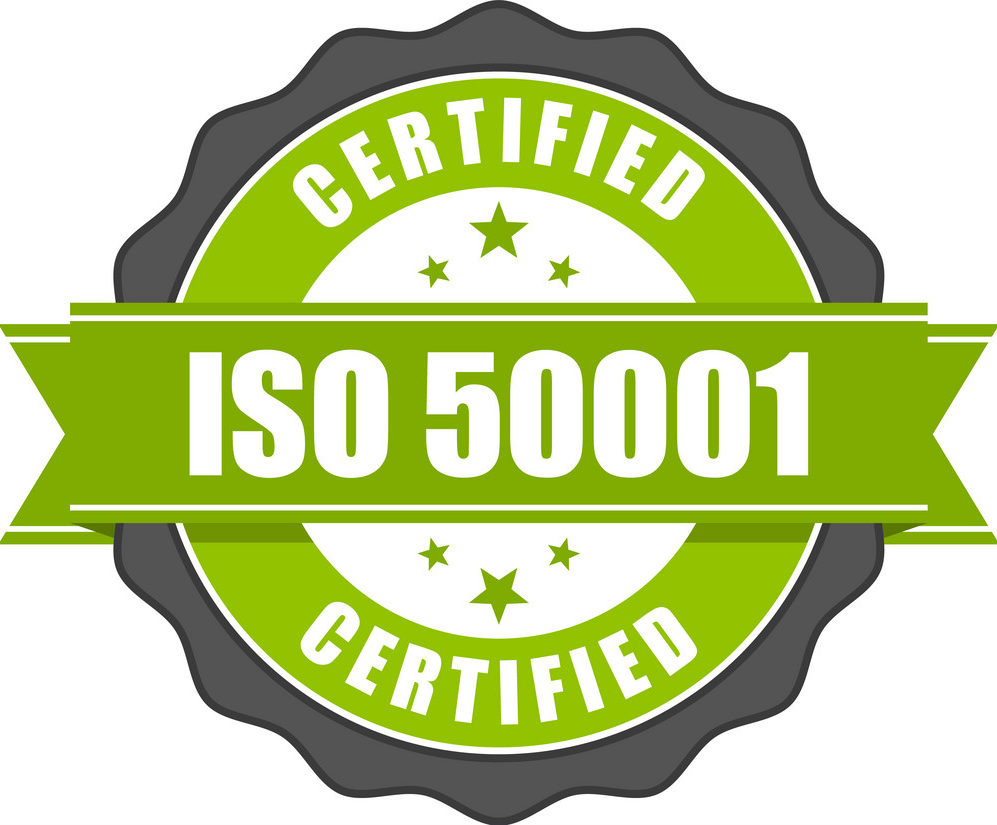ISO 50001 - Energy Management System

Benefits of Implementing ISO 50001:
1. Improved Energy Performance: ISO 50001 helps organizations improve energy performance, increase energy efficiency, and reduce energy consumption and related costs.
2. Compliance with Legal and Regulatory Requirements: ISO 50001 helps organizations comply with legal and regulatory requirements related to energy management and energy efficiency, reducing the risk of non-compliance and potential legal consequences.
3. Cost Savings: ISO 50001 can lead to cost savings by reducing energy consumption, improving energy efficiency, and lowering energy-related costs, such as electricity, fuel, and other energy expenses.
4. Enhanced Environmental Sustainability: ISO 50001 helps organizations reduce their environmental impact by reducing energy consumption and related greenhouse gas emissions, contributing to environmental sustainability and climate change mitigation efforts.
5. Improved Corporate Reputation: Certification to ISO 50001 demonstrates an organization's commitment to energy management and environmental sustainability, enhancing its reputation and credibility with customers, stakeholders, and the public.
For Energy Management Systems (EnMS), the relevant standard is ISO
50001. Here's an overview of ISO 50001 and its key components:
ISO 50001: Energy
Management Systems
ISO 50001 is an international standard developed by the International
Organization for Standardization (ISO) that provides requirements for
establishing, implementing, maintaining, and continually improving an energy
management system (EnMS). ISO 50001 is designed to help organizations improve
their energy performance, increase energy efficiency, and reduce energy
consumption and related greenhouse gas emissions. Key elements of ISO 50001
include:
1. Scope and Applicability: ISO 50001 applies to organizations of
all sizes and types, in any industry sector, that wish to establish and
maintain an energy management system to improve energy performance. It is
applicable to energy use and consumption in buildings, facilities, processes,
and equipment.
2. Energy Policy and Objectives: ISO 50001 requires organizations
to establish and document an energy policy that reflects their commitment to
energy management and energy performance improvement. The energy policy should
include a commitment to comply with legal and other requirements, improve
energy performance, and establish energy objectives and targets.
3. Energy Planning and Implementation: ISO 50001 requires
organizations to establish, implement, and maintain processes for identifying
energy use, energy consumption, and energy efficiency opportunities. This
includes conducting energy reviews, energy audits, and energy assessments to
identify energy-saving opportunities and prioritize energy efficiency measures.
4. Energy Performance Indicators (EnPIs): ISO 50001 requires
organizations to establish energy performance indicators (EnPIs) to measure and
monitor energy performance and energy efficiency improvements. EnPIs can
include energy consumption, energy intensity, energy efficiency ratios, and
other relevant metrics.
5. Energy Performance Improvement: ISO 50001 requires
organizations to establish, implement, and maintain energy performance
improvement objectives and targets. This includes implementing energy
efficiency measures, energy-saving projects, and other initiatives to improve
energy performance and reduce energy consumption.
6. Monitoring and Measurement: ISO 50001 requires organizations to
monitor, measure, and analyze energy performance and energy efficiency
improvements on a regular basis. This includes collecting and analyzing energy
data, tracking progress against energy objectives and targets, and identifying
areas for improvement.
7. Management Review: ISO 50001 requires top management to review
the organization's energy management system on a regular basis to ensure its
effectiveness, adequacy, and suitability. Management reviews should include an
assessment of energy performance, energy objectives and targets, energy
efficiency measures, and compliance with legal and other requirements.
8. Continual Improvement: ISO 50001 promotes a culture of continual improvement in energy performance and energy management. Organizations are required to continually seek opportunities to improve energy performance, implement energy efficiency measures, and enhance the effectiveness of their energy management system.
Overall, ISO 50001 provides a systematic approach to energy management, helping organizations improve energy performance, increase energy efficiency, and reduce energy consumption and related costs. By implementing ISO 50001, organizations can achieve tangible benefits in terms of cost savings, environmental sustainability, and corporate reputation.

